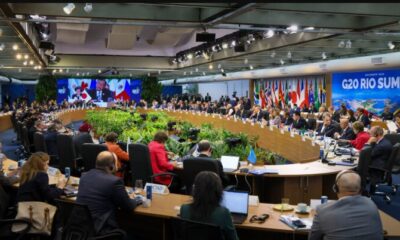By contrast, Labour’s campaign attempted to make the election effectively a referendum on austerity and the past decade of Conservative rule — and especially the risk to the National Health Service from an American trade deal. Its manifesto was by some way the most serious, especially on climate change. And it mobilized many thousands of activists in door-knocking campaigns, and mounted a huge digital campaign. But between Mr. Corbyn’s personal unpopularity, a media focused, often inanely, on Brexit, and four years of attacks on the leadership by dissatisfied backbenchers — as well as a sometimes dizzying number of policies — it was hard to cut through the noise.
The result is clear: The electoral map has been redrawn. Scotland, in disgust, returned a near full sweep for the Scottish National Party, all but wiping out both major parties. In England and Wales, the story was more stark still. Seats held by the Labour Party since the end of World War II fell to the Conservatives, as the party faced bruising losses in areas it has long regarded as its heartlands. The loss of dozens of seats across the Midlands and the North — including Blyth Valley, a former mining constituency ranked at 116 on the Tory target list — testifies to the depth of the defeat and ensures Labour’s vote is much more geographically constrained to the major cities.
Many voters will look at an unfamiliar country and grasp for explanations. Many, especially in the cities where Labour made its few gains on Thursday night, will reach for Brexit — that traditional Labour voters who opted to leave in the 2016 referendum wanted above all to see Brexit carried out, and so either voted for the Conservatives or abstained altogether. But Brexit is a symptom and an accelerant, not an explanation in itself. Many of the seats Labour lost in this election have been taken for granted by the party for a long time. It is little wonder that leave voters in such seats felt scant loyalty to a party committed, after much agonized prevarication, to a second referendum.
Brexit is also an opportunity for Mr. Johnson: It offers him the chance to remake the economic and political foundations of Britain. He will likely pass his Brexit deal through Parliament before Christmas. But when Britain finally floats free of the European Union, some of the delusions driving Mr. Johnson’s Brexit — a swashbuckling Global Britain, Empire 2.0 — will be decidedly dashed. The trade world is likely to be much more brutal; Britain’s economy, already replete with ill-paying, gig-economy jobs, will surely suffer. Whether this sobriety hits before the June deadline for Mr. Johnson to request an extension — which his manifesto ruled out — to negotiations on a new trade deal with the bloc is an open question. But while traditional Conservative voters can afford the turbulence of a hard exit, his newly-acquired constituents cannot.
Though now less restive, Parliament will not all be plain sailing for Mr. Johnson, either. Nicola Sturgeon, the leader of the ascendant Scottish National Party, has signaled her intention to hold a new referendum on independence next year. Meanwhile, the special status accorded to Northern Ireland in Mr. Johnson’s deal infuriates many Unionists — and could accelerate moves toward a United Ireland. Major constitutional showdowns seem likelier as Brexit shakes out. A confrontation between Ms. Sturgeon and Mr. Johnson seems inevitable.

 Entertainment1 week ago
Entertainment1 week ago
 Tech4 days ago
Tech4 days ago
 Tech4 days ago
Tech4 days ago
 General News2 days ago
General News2 days ago
 Business News1 day ago
Business News1 day ago
 Jobs1 day ago
Jobs1 day ago
 General News2 days ago
General News2 days ago
 Business News1 day ago
Business News1 day ago

